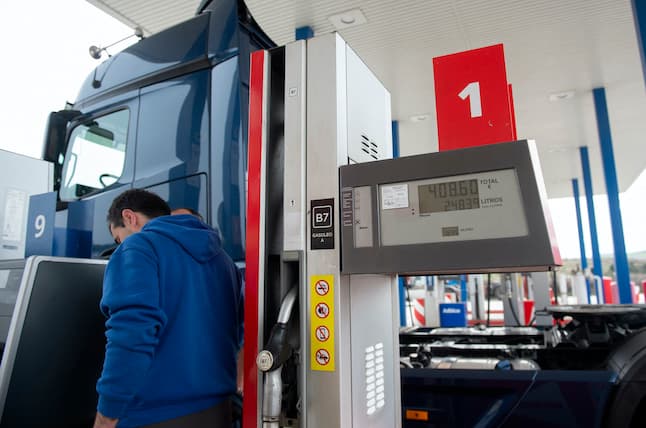Spanish inflation slows as fuel prices ease

Spain's inflation rate slowed in August as fuel prices eased but it remained elevated due to rising electricity and food prices, official data showed on Tuesday.
Russia's invasion of Ukraine has sent inflation soaring worldwide, prompting central banks to hike interest rates in an effort to rein in consumer prices.
Spain's annual rate hit 10.4 percent, compared to 10.8 percent in July, according to the National Statistics Institute.
Inflation has remained in double digits in the eurozone country since June, a level not seen since the mid-1980s.
Economy Minister Nadia Calvino said consumer prices were on a "downward
slope" that will continue "over the course of the next months".
But she called for "caution" as "uncertainty is very high due to the war".
The Spanish government has rolled out aid packages in recent months to help
households and businesses weather the inflationary pressure.
The European Central Bank, which oversees monetary policy in the eurozone,
raised its interest rates for the first time in over a decade in July as energy prices drove inflation ever higher.
The ECB is expected to raise rates again at its next meeting on September
8th, with calls increasing for the bank to act decisively.
Comments
See Also
Russia's invasion of Ukraine has sent inflation soaring worldwide, prompting central banks to hike interest rates in an effort to rein in consumer prices.
Spain's annual rate hit 10.4 percent, compared to 10.8 percent in July, according to the National Statistics Institute.
Inflation has remained in double digits in the eurozone country since June, a level not seen since the mid-1980s.
Economy Minister Nadia Calvino said consumer prices were on a "downward
slope" that will continue "over the course of the next months".
But she called for "caution" as "uncertainty is very high due to the war".
The Spanish government has rolled out aid packages in recent months to help
households and businesses weather the inflationary pressure.
The European Central Bank, which oversees monetary policy in the eurozone,
raised its interest rates for the first time in over a decade in July as energy prices drove inflation ever higher.
The ECB is expected to raise rates again at its next meeting on September
8th, with calls increasing for the bank to act decisively.
Join the conversation in our comments section below. Share your own views and experience and if you have a question or suggestion for our journalists then email us at [email protected].
Please keep comments civil, constructive and on topic – and make sure to read our terms of use before getting involved.
Please log in here to leave a comment.